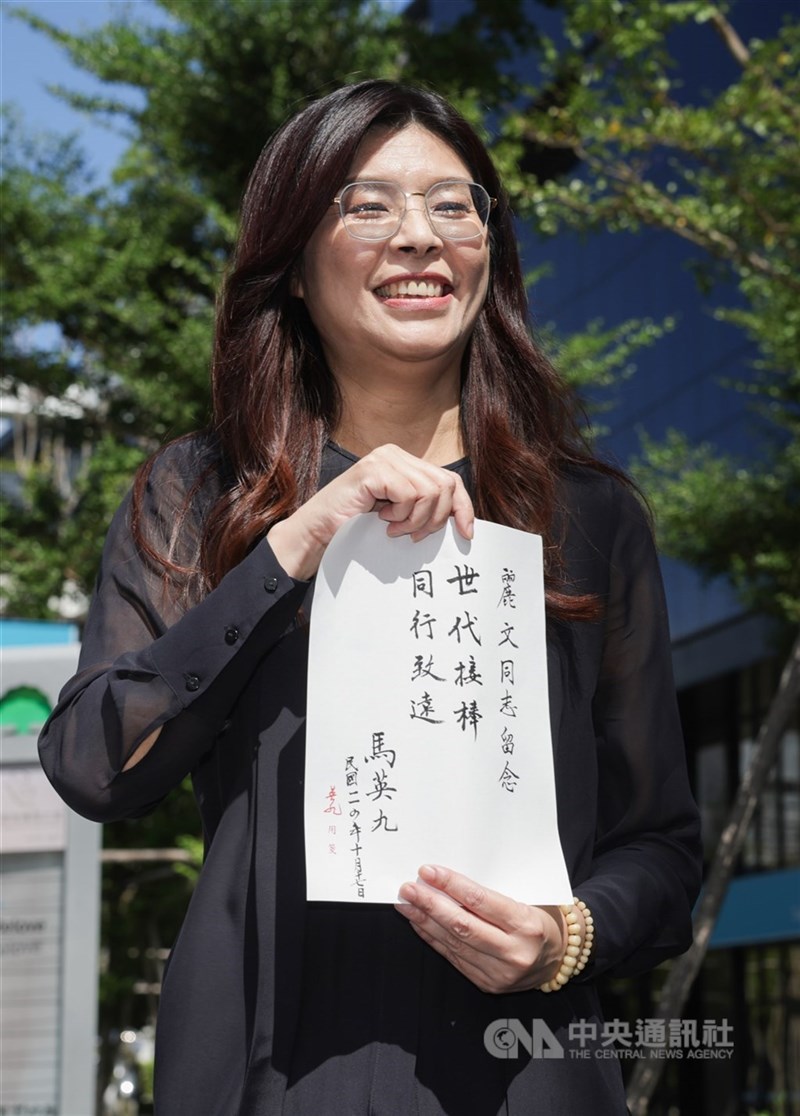China policy, opposition unity will be Cheng's main challenges: KMT sources

Taipei, Oct. 18 (CNA) Former Legislator Cheng Li-wun (鄭麗文), who was elected chairperson of the opposition Kuomintang (KMT) on Saturday, will face two main challenges in her new role -- the main one being the party's stance on China affairs, according to sources within the KMT.
Apart from the China issue, the other major challenge for the new KMT leader will be whether she can forge cooperation with the smaller opposition Taiwan People's Party (TPP) to lead the KMT back into power, a KMT insider told CNA on condition of anonymity.
Cheng beat five other candidates, including another front runner -- two-time Taipei Mayor Hau Lung-bin (郝龍斌) -- to win the race and become the second woman to be elected as party chairperson, following Hung Hsiu-chu (洪秀柱), who served from 2016 to 2017.
With Cheng as leader of the main opposition party, other members who plan to run in the future against candidates from the ruling pro-independence Democratic Progressive Party (DPP) are likely to encounter pressure, the KMT source said, noting that Cheng has been known to call on people in Taiwan to identify as "Chinese."
During the chairperson election campaign, Cheng was embroiled in controversy over her stance on China affairs and her alleged affiliation with Beijing.
At one point, KMT heavyweight and TV personality Jaw Shau-kong (趙少康) accused China of interfering in the election and implied that Beijing favored Cheng.
According to the KMT source, Cheng will need to tackle such internal controversies, devise a clear cross-strait policy, and work to unite the different factions within the party.
In addition, the source said, the party's future leadership direction will differ somewhat from the past, and it may take some time for party members to adapt, given that she was a DPP member until 2002, after which she joined the KMT in 2005.
Meanwhile, a KMT city councilor, who asked not to be named, said Cheng needs to consider how to work with the TPP to defeat the "green camp," referring to the DPP.
For example, the councilor said, there is the imminent question of whether the KMT would decide not to compete against the TPP for some seats in the 2026 local government elections, to improve the opposition parties' chances of winning the majority of seats.
More importantly, cooperation between the blue and the white camps -- the KMT and the TPP -- will be critical in the presidential election in 2028 if they are to oust the DPP, the councilor said.
In 2024, the DPP won the presidential election, with Lai Ching-te (賴清德) gaining 40.05 percent of the votes, after the KMT and TPP failed to form a joint ticket. The KMT's Hou Yu-ih (侯友宜) and the TPP's Ko Wen-je (柯文哲) secured 33.49 percent and 26.46 percent of votes, respectively, totaling 59.95 percent.
According to another source within the KMT, the century-old party needs a facelift, and Cheng is the right person to do that. At age 55, she is younger than most of the KMT heavyweights and is seen as a good successor to the previous party leaders, the source said.
The KMT has been in opposition for the past nine years, having lost the last three presidential elections to the DPP, the source noted. There are high hopes within the KMT that Cheng, who presents as a fighter, will help the KMT win the next presidential election, according to the source.
Cheng will start her four-year term as leader of the KMT on Nov. 1, succeeding incumbent chairman Eric Chu (朱立倫).
-
Business
Taiwan to raise natural gas prices by 3% on average in March
02/28/2026 09:14 PM -
Politics
Taichung mayor to visit U.S. in mid-March
02/28/2026 08:52 PM -
Politics
Taiwan closely monitoring situation after U.S., Israel strike Iran: Lai
02/28/2026 08:31 PM -
Politics
Taipei Mayor Chiang Wan-an remembers 228 Incident, seeks to transcend tragedy
02/28/2026 08:23 PM -
Politics
Taiwan raises Israel travel alert amid U.S.-Israel strikes on Iran
02/28/2026 08:01 PM